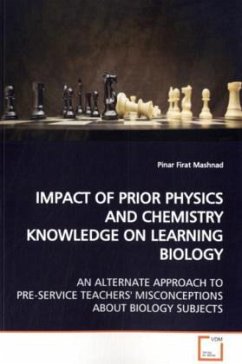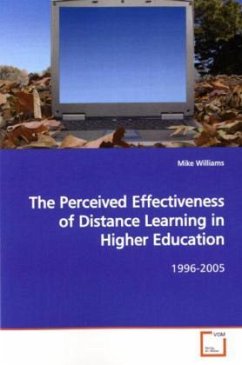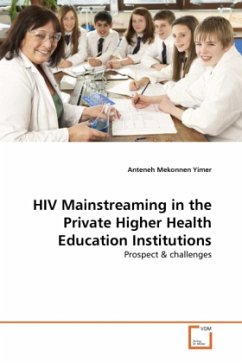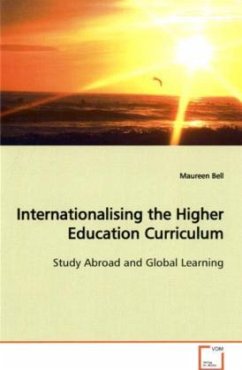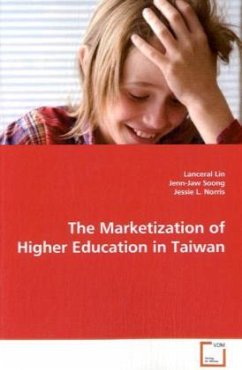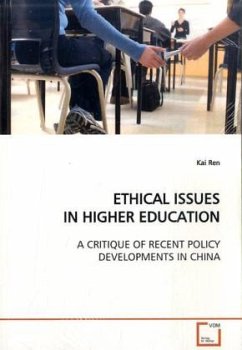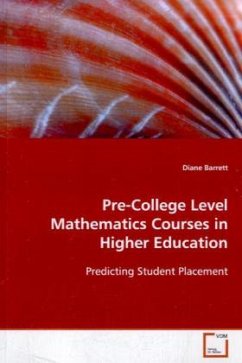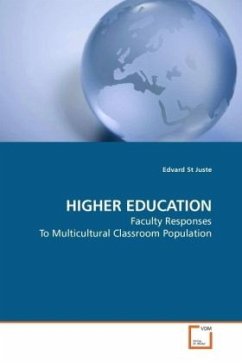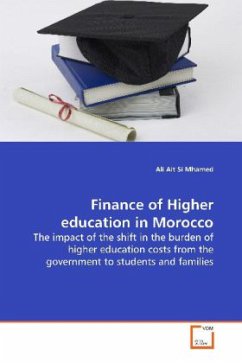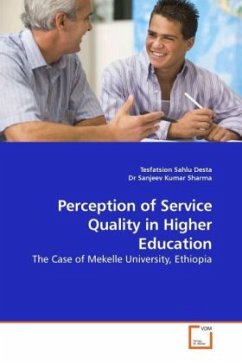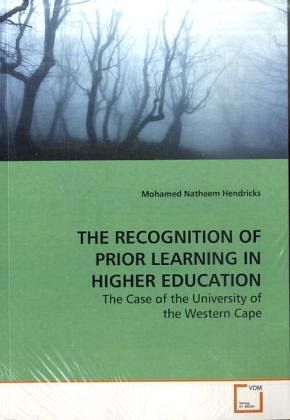
THE RECOGNITION OF PRIOR LEARNING IN HIGHER EDUCATION
The Case of the University of the Western Cape
Versandkostenfrei!
Versandfertig in 6-10 Tagen
32,99 €
inkl. MwSt.

PAYBACK Punkte
16 °P sammeln!
This research investigates how Recognition of PriorLearning (RPL) in higher education promotes socialtransformation. Through analysing a specific RPLprogramme, some conclusions on this matter weredrawn. This research, a qualitative study, analysesofficial documents, institutional reports, learningportfolios - produced by RPL candidates wherein theynarrated their autobiographical learning histories.This research highlights the fact that RPL at theUniversity of the Western Cape took place within aparticular historical and social context. Firstly,the location of RPL within the discourse of lifelo...
This research investigates how Recognition of Prior
Learning (RPL) in higher education promotes social
transformation. Through analysing a specific RPL
programme, some conclusions on this matter were
drawn. This research, a qualitative study, analyses
official documents, institutional reports, learning
portfolios - produced by RPL candidates wherein they
narrated their autobiographical learning histories.
This research highlights the fact that RPL at the
University of the Western Cape took place within a
particular historical and social context. Firstly,
the location of RPL within the discourse of lifelong
learning contributed to its transformative potential
since; inherent in lifelong learning is the promise
of social inclusion which incorporates the need to
broaden access to learning opportunities. Secondly,
UWC experienced a rapid decline in its student
numbers between 1996 and 1998 which threatened the
survival of the institution. Finally the South
African national education legislative and regulatory
environment supported and encouraged the
implementation of RPL at institutions of higher
learning to contribute to social redress and social
equity
Learning (RPL) in higher education promotes social
transformation. Through analysing a specific RPL
programme, some conclusions on this matter were
drawn. This research, a qualitative study, analyses
official documents, institutional reports, learning
portfolios - produced by RPL candidates wherein they
narrated their autobiographical learning histories.
This research highlights the fact that RPL at the
University of the Western Cape took place within a
particular historical and social context. Firstly,
the location of RPL within the discourse of lifelong
learning contributed to its transformative potential
since; inherent in lifelong learning is the promise
of social inclusion which incorporates the need to
broaden access to learning opportunities. Secondly,
UWC experienced a rapid decline in its student
numbers between 1996 and 1998 which threatened the
survival of the institution. Finally the South
African national education legislative and regulatory
environment supported and encouraged the
implementation of RPL at institutions of higher
learning to contribute to social redress and social
equity



